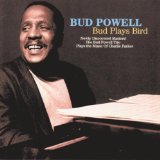-
Posts
13,205 -
Joined
-
Last visited
-
Donations
0.00 USD
Content Type
Profiles
Forums
Events
Blogs
Everything posted by Larry Kart
-
There is no trombone on Lee's "Black Coffee." The only horn is trumpeter Pete Candoli, originally billed for contractual reasons as "Cootie Chesterfield."
-

How Does Walter Piston Fit Into the Grand Scheme Of Things?
Larry Kart replied to JSngry's topic in Classical Discussion
IIRC, Charles Munch's recording (LP only -- I have a copy) of Piston's Symphony No. 6 with the Boston Symphony Orchestra is a revelation. Associated with some of that crowd to some degree is a particular favorite of mine, the late Arthur Berger (1912-2003): https://en.wikipedia.org/wiki/Arthur_Berger_(composer) http://www.amazon.com/Complete-Orchestral-Music-Arthur-Berger/dp/B0000DI4SP/ref=sr_1_2?s=music&ie=UTF8&qid=1455316006&sr=1-2&keywords=arthur+berger http://www.amazon.com/Arthur-Berger-Retrospective-Various-Artists/dp/B0000030E2/ref=sr_1_6?s=music&ie=UTF8&qid=1455316068&sr=1-6&keywords=arthur+berger http://www.amazon.com/Arthur-Berger-Words-Music-Perhaps/dp/B00DJYK9PA/ref=sr_1_3?s=music&ie=UTF8&qid=1455316068&sr=1-3&keywords=arthur+berger http://www.amazon.com/Berger-Serenade-Concertante-American-Masters/dp/B000005TVB/ref=sr_1_1?s=music&ie=UTF8&qid=1455316068&sr=1-1&keywords=arthur+berger And don't neglect one of Mark's and my favorites, George Walker. -

Bing Crosby sings and swings in 1932
Larry Kart replied to Larry Kart's topic in Miscellaneous Music
I wondered, too; he sure looks familiar. But don't see him in the movie credits list. -

How Does Walter Piston Fit Into the Grand Scheme Of Things?
Larry Kart replied to JSngry's topic in Classical Discussion
Gotcha. -

How Does Walter Piston Fit Into the Grand Scheme Of Things?
Larry Kart replied to JSngry's topic in Classical Discussion
Hanson? At least in style, he and Piston couldn't be more different -- the former given to broad neo-Romantic strokes, the latter anything but that. -
http://www.bobthompsonmusic.com Fascinating stuff -- worth scrolling through the whole thing. A life in the 20th Century for real. I guessed right on the Ellington influence.
-

How Does Walter Piston Fit Into the Grand Scheme Of Things?
Larry Kart replied to JSngry's topic in Classical Discussion
Like you, I've liked everything of Piston I've heard without being knocked down on the floor by it -- "tonalities that are ambiguously precise" is a nice way to put it. Also, maybe, a neatness that verges on the compulsive at times but is not trivial. BTW, Piston was of Italian background; the name was "Pistone." I'd recommend what there is on Naxos -- symphonies (though I haven't head those recordings: I have some good older ones on LP), the two violin concerti, a disc of chamber works. Piston wrote a fair number of string quartets, which I haven't heard, and I think that would a very good medium for him. Don't see a set on CD right now, and I recall that an LP set from the past (Portland String Quartet?) was thought not to be too good. *** I see now that there is Naxos Piston String quartet disc (1,3,5) by the Harlem Quartet. If you can't check it out on Spotify, maybe I can. -
Some interesting thoughts about "Cosi" (which can be extended to many other operas) from Kenneth J. Furie in "The Metropolitan Opera Guide to Recorded Opera": "An 'ensemble opera': that's what we're always told 'Cosi' is: no other repertory opera has so symmetrically balanced a set of characters ... and a major portion of the action takes the form of musical ensembles.... There is something different about 'Cosi,' though: some way in which the individual characters' identities are concealed within group identities.... What's difficult is really searching out those individual identities wwithin the outwardly symmetrical framework. To the extent that performers think of the endemble piece as one in which the group matters, rather than one in which each individual is defined largely through interaction with the others, 'Cosi' the 'ensemble opera' is at best half-alive. Later on, he writes in the above vein about the Eugen Jochum recording on DGG: "The cast performs almost entirely from its strengths.... Irmgard Seefried is clearly underequipped for Fiordiligi ... and Seefried, Prey, and Fischer-Dieskau have all been known to 'personalize' by displaying attitude rather than finding the content of the music. Yet somehow the performance manages to align these habits with the areas of their lives about which the characters themselves are ignorant, and which become the subject of their Act II voyage of discovery." {My emphases}
-
For the close-to-full experience, if Mozart opera is going to work at all for you, and given the likelihood that a really good production isn't going to be mounted in your area for quite a while if ever, I'd recommend a DVD or two. (If you don't have a DVD player -- some people don't anymore or never did -- much that's on DVD might also be available via computer.) Three I can recommend: "Cosi Fan Tutte" -- Harnoncourt (Arthaus) or Barenboim (Euroarts), the latter in an arguably effective "Euro-modern" production; "La Nozze di Figaro" -- Olmi (Kultur). Wish I had a battle-tested "Don Giovanni" DVD at my fingertips, but I don't, though I'm sure good ones are out there; I've seen a couple in the flesh and my gosh. I just wanted to stick here with DVDs that worked for me. You might want to try your library system before buying.
-
Here it is:
-
The vulnerability of Rosie's version is something else. And what a voice! Nice somewhat Ellingtonian chart, too. Who was Bob Thompson?
-
Hope Lange John Cheever Miniver Cheevy Edwin Arlington Robinson Edna St. Vincent Millay Edna St. Lous Missouri
-

What Classical Music Are You Listening To?
Larry Kart replied to StarThrower's topic in Classical Discussion
-

Download:Ros Rudd/Me/Darius Jones/Ray Anderson
Larry Kart replied to AllenLowe's topic in Offering and Looking For...
'C'mon Larry: "(not) alien to the ears of, say, an admirer of Mingus' music or Roswell Rudd's '60s work on Impulse" is hardly a recommendation.' It's not? Besides -- I'm not recommending or, if you will, selling Allen's work in this particular instance, I'm just trying to figure out what the thinking was behind your "Who is this for?" You've now made it clear, unless I don't understand you at all, that the music of Mingus and Rudd are, for two, beyond the pale ("hardly a recommendation"). But Ayler's "Billie's Bounce" is OK by you? I'm bemused. And what "primitiveness of the past" do you have in mind? BTW, my mention of Kenny G was sarcastic. -

Download:Ros Rudd/Me/Darius Jones/Ray Anderson
Larry Kart replied to AllenLowe's topic in Offering and Looking For...
"Who is this for, Allen?" Kenny G fans everywhere? Without ignoring the specific virtues of Allen's work here, in terms of overall style there's little or nothing in this piece that would be alien to the ears of, say, an admirer of Mingus' music or Roswell Rudd's '60s work on Impulse ... and on and on. What are those "serious questions" then? -
These tracks are from “Time Was.” I hear a substantial difference between them, especially in terms of rhythmic freedom, and those on “Bud Play Bird.” And they do come from about the same time. https://www.youtube.com/watch?v=LWcg5b_F4Dg https://www.youtube.com/watch?v=HO_tMlDpj8s
-
Not in L.A. He was in the Tonight Show band for seven years in NY after Doc Severinsen took over leadership but remained in NY to freelance when the show moved to L.A.
-
Well, the Penguin Guide gives it four stars and says "All Bud Powell fans will want this record." By contrast, check out anything, but especially "Just One of Those Things," on "Bud Powell, Live in Geneva 1962," which was mentioned earlier in this thread, in a passage I took from a knowledgable Powell fan's survey on Amazon of the best latter-day Powell live recordings. My gosh what playing! BTW, what I particularly don't like about "Bud Plays Bird" is the sense almost throughout that Bud finds himself imprisoned by bar-lines; few are the moments when he flows over them, which is why I said that he sounds like he's in chains. When Bud was really Bud, as on "Live in Geneva," there was no bar line he couldn't leave in the dust. The opening 30 seconds of the Geneva “Just One of Those Things” can be heard here: http://www.cduniverse.com/productinfo.asp?pid=7988203 Bud goes on at that pace and level for six minutes.
-
A warning: After beginning this thread by extolling much that's on the RCA-Bluebird Powell CD "Time Was," I bought "Bud Plays Bird," which Bud recorded for Roulette with the same rhythm section (George Duvivier and Art Taylor) at about the same time and which had never been issued until Cuscuna unearthed it in 1996. Sad to say, it's pretty dire, at least IMO. Bud sounds close to comatose, and/or like he's in chains. The instrument he's playing is close to comatose, too. Onward to more late Powell.
-
-

What Classical Music Are You Listening To?
Larry Kart replied to StarThrower's topic in Classical Discussion
Fine performance of the Schubert D. 894, a great work. Haven't moved on to the Schumann No. 2 yet. It’s amazing to me how out there Schubert could be, especially in the piano sonatas, and this one as much as any I know. It’s like the most basic building blocks/materials of music are virtually stripped of all rhetoric — a note is just a note, a chord a chord, a rhythm a rhythm, a modulation a modulation. Of course, these things do coalesce into larger designs, but at the root there is this sense of nakedness, of near-isolation of parts. Schubert was the Morton Feldman of his time? -
This translation of “The Master and Margarita” by Diana Burgin and Katherine Tiernan O'Connor is quite good: http://www.amazon.com/Master-Margarita-Mikhail-Bulgakov/dp/0679760806/ref=sr_1_1?s=books&ie=UTF8&qid=1454447418&sr=1-1&keywords=the+master+and+margarita Compare it to Peaver’s and I think you’ll see the difference: http://www.amazon.com/Master-Margarita-Penguin-Classics/dp/0141180145/ref=sr_1_4?s=books&ie=UTF8&qid=1454447418&sr=1-4&keywords=the+master+and+margarita A comment from a native Russian speaker on P/V’s “The Master and Margarita”: ‘Pevear & Volokhonsky’s translations are awful travesties of the original Russian meaning and nuance. They succeed by virtue of seeming “weird” where the original text uses a completely commonplace idiom, or, vice versa, missing something unique to the writer’s style and replacing it with a pedestrian cliche. Readers who have no Russian think the “clunkiness” of the translation is a window to the original writer’s peculiar style and idiom. Unfortunately, they’re being deceived. The clunkiness is almost always the invention of the translators. The issue isn’t whether the original was “smooth” or not; it’s that it wasn’t smooth in ways entirely different than those ignorantly made-up by this team. ‘I’m sorry if these words seem too strong; I have strong opinions on the issue. Any native speaker of Russian who appreciates the original texts and knows English well enough will find it painful to read the original and P&V’s translation side-by-side. I tried to do that in 2003 and briefly reviewed their translation of Bulgakov in my blog (in Russian). ‘The examples cited in that blogpost and comments show that time and again P&V use a literal translation of an idiom or a common expression, resulting in a weird English phrase or a weird syntax that both obscures the original meaning, and makes the sentence stand out gratuitously, giving the reader some of that desired “clunkiness.” ‘E.g. when Bulgakov speaks of “нечистые силы” (nechistye sily), a traditional, entirely commonplace Russian expression for demons or evil spirits, he’s not introducing an interesting new metaphor. Now “нечистые силы” is literally “unclean powers”, but even saying that is a bit of a stretch, as the word “unclean”, “нечистые”, has over the centuries become synonymous with “demonic” in any religious/mystical context, so much so that there’s a noun back-formed from it, нечисть, referring solely to all the forces of evil as a collective noun. Arguably, then, even a strictly literal translation of “нечистые силы” should be “demonic powers” rather than P&V’s “unclean powers”, which is simply weird, confusing, unidiomatic where the original text, *on that particular occasion*, is completely idiomatic. ‘A more systemic example is their consistent use of “here” where the original text is saying “then”. E.g. “Here the second oddity occurred, touching Berlioz alone”. Russian has two words for “here”, “здесь” (zdes’) and “тут” (toot); they are entirely synonymous in that role, but “тут” can also be used to link sentences describing events occurring one right after the other, that is, a sentence that starts with “тут” is analogous to an English sentence that starts with “then” in a similar role - and there’s nothing spatial about this use of “тут”. When P&V consistently translate “тут” in the meaning of “then” as “here”, it’s a gaffe that produces sentences that seem a bit weird or jarring (especially after many repetitions of this “here"), while there was nothing weird or jarring in the original syntax. ‘These are just two random examples out of a dozen that one could find on any given page. It’s the principle of the thing rather than an exception. P&V seem to start with a completely literal word-by-word translation by Volokhonsky, one that doesn’t even preserve common idioms; it is then perhaps edited into shape by going after some clunkiness here and some inventiveness there, in total ignorance of what’s interesting or unique about the original author’s style or idiom.’
-
This Morson piece about P/V's work is accessible, at least to me: https://www.commentarymagazine.com/articles/the-pevearsion-of-russian-literature/ Let me know if you're interested but the link doesn't work, and I'll see what I can do. About it being "more important to read these books than to obsess over (I would say care about) translation," I would say, if the translation is inept, what are you in fact reading? This piece might be instructive: http://www.theatlantic.com/magazine/archive/2004/10/no-way-madame-bovary/303488/ I particularly like this bit: 'Any translator must be unusually alert to what is alive or dead about his own use of language or else he will do an injury to Flaubert's style far more serious than merely failing to reproduce its pulse and lilt. When Flaubert seems to be saying that Charles's off-putting first wife is long in the tooth, the translator had better be careful about calling her long in the tooth, which in English means "old": Flaubert is just saying that her teeth are long.' (Thus that she is in that respect unattractive.)
-
Sorry but the P/V translations are pretty bad, a triumph of hype. But don't take my word for it; see this from Gary Saul Morson, who really knows his stuff: https://www.scribd.com/doc/40906160/The-Pevearsion-of-Russian-Literature
_forumlogo.png.a607ef20a6e0c299ab2aa6443aa1f32e.png)



